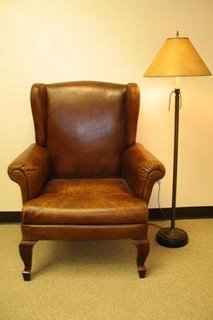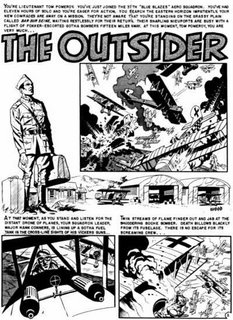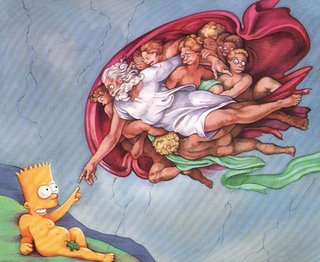
This post is dedicated to my friend, Mathias Rosenkranz, a proud resident of Vienna.
Now this long tale is finished, but before I close my book, I must say a few words . . .
Arthur Rubinstein, My Many Years.
. . . a few more words . . .
Sigmund Freud, An Autobiographical Study.
In June of 1938, a few days before the Freud family left Vienna for London, Freud’s friend August Aichhorn asked a young photographer, Edmund Engelman, to take some pictures of Freud’s place of residence, so there would be a visual record of the locale where psychoanalysis came into being.
Bruno Bettelheim, Freud’s Vienna & Other Essays.
And so it was that . . .
Jack London, The Sea Wolf.
. . . the good doctor’s . . .
H.G. Wells, The Secret Places of the Heart.
. . . friend and confidant . . .
G.A. Henty, In Freedom’s Cause.
. . . August Aichhorn . . .
Edmund Engelman, Berggasse 19: Sigmund Freud’s Home and Offices, Vienna, 1938.
. . . trundled me off to Freud’s house at Berggasse, 19, . . .
Erica Jong, Fear of Flying.
. . . one evening . . .
Arthur Rubinstein, My Many Years.
. . . after nightfall.
Passover Hagadah.
When we arrived . . .
Charles Dickens, David Copperfield.
The doctor opened the door himself and greeted me very cordially, and I noticed immediately that his dark eyes and his face bore the marks of wisdom and kindness.
Arthur Rubinstein, My Many Years.
Freud, . . .
Edmund Engelman, Berggasse 19: Sigmund Freud’s Home and Offices, Vienna, 1938.
. . . it was . . .
Harold Bloom, The Book of J.
. . . explained to me, was already 82 years old, and had been quite ill for many years.
Edmund Engelman, Berggasse 19: Sigmund Freud’s Home and Offices, Vienna, 1938.
In his spacious library, where he served us coffee and cakes, he showed me his fine collection of small bronzes, including a lovely Rodin.
Arthur Rubinstein, My Young Years.
. . . a statue of Victor Hugo . . .
Monique Laurent, Rodin.
“These bronzes are my passion,” he said.
Arthur Rubinstein, My Young Years.
To the left and right of the door were glass showcases filled with hundreds of antiquities. These were set up in several rows; every bit of cabinet space was filled.
I had been aware of the fact that Freud was a collector of ancient art, for my closest friend was the son of a well-known antique dealer in Vienna. Once a week, Freud had made the rounds of the city’s dealers. They, in turn, would know what he was looking for and saved items for him. Nevertheless, I was amazed by the unbelievable number of art objects.
Edmund Engelman, Berggasse 19: Sigmund Freud’s Home and Offices, Vienna, 1938.
In awe, . . .
Harold Bloom, The Book of J.
I stood, open-mouthed, incredulous.
Arthur Rubinstein, My Young Years.
There was nothing of the popular Austrian Baroque or Biedermeyer art; there were only antiquities of great age—Roman, Egyptian, Assyrian, and Etruscan. Wherever one looked, there was a glimpse into the past.
Edmund Engelman, Berggasse 19: Sigmund Freud’s Home and Offices, Vienna, 1938.
His vast library and the quality of the books bore testimony to the fact that . . .
Arthur Rubinstein, My Young Years.
. . . Freud . . .
Harold Bloom, The Western Canon: The Books and School of the Ages.
. . . was a well-read man.
Arthur Rubinstein, My Young Years.
There in the library . . .
Richard Harding Davis, The Messengers.
. . . were books relating not only to his profession, but also a large collection of classic literature, including works of Goethe, Schiller, Mark Twain, Dostoyevsky, and a large number of books on archaeology.
Edmund Engelman, Berggasse 19: Sigmund Freud’s Home and Offices, Vienna, 1938.
As for me, . . .
Mark Twain, Christian Science.
. . . books written by . . .
Gene Stratton-Porter, Her Father’s Daughter.
. . . Goethe, Schiller, Mark Twain, Dostoyevsky, . . .
Edmund Engelman, Berggasse 19: Sigmund Freud’s Home and Offices, Vienna, 1938.
. . . and all the other old masters—
Mark Twain, Some Thoughts on the Science of Onanism.
. . . remain treasured memories.
Arthur Rubinstein, My Young Years.
The art of memory, with its rhetorical antecedents and its magical burgeonings, is very much an affair of imaginary places, or real places transmuted into visual images. Since childhood, I have enjoyed an uncanny memory for literature, but that memory is purely verbal, without anything in the way of a visual component. Only recently, past the age of sixty, have I come to understand that my literary memory has relied upon the Canon as a memory system. If I am a special case, it is only in the sense that my experience is a more extreme version of what I believe to be the principal pragmatic function of the Canon: the remembering and ordering of a lifetime’s reading.
Harold Bloom, The Western Canon: The Books and School of the Ages.
A lesson in . . .
William Shakespeare, Hamlet (Modern English Version).
. . . the deliberate exercise of recall in a well-furnished mind[:] . . .
Anthony Storr, Solitude: A Return to the Self.
. . . thoughts and remembrance aptly placed.
William Shakespeare, Hamlet (Modern English Version).
The greatest authors take over the role of “places” in the Canon’s theater of memory, and their masterworks occupy the position filled by “images” in the art of memory. Shakespeare and Hamlet, central author and universal drama, compel us to remember not only what happens in Hamlet, but more crucially what happens in literature that makes it memorable and thus prolongs the life of the author.
Harold Bloom, The Western Canon: The Books and School of the Ages.
Well then!
Johann Wolfgang von Goethe, Faust.
It turned out that . . .
Boris Pasternak, Dr. Zhivago.
. . . Professor Freud, after considerable harassment that included a Nazi break-in at his home and the detention of his daughter Anna, had finally received permission to leave Vienna for London, thanks to the intervention of high-ranking personalities and foreign diplomats.
Edmund Engelman, Berggasse 19: Sigmund Freud’s Home and Offices, Vienna, 1938.
I learned that . . .
Jack London, The People of the Abyss.
. . . the Freuds would leave within ten days. The historic apartment and offices were about to be broken up for storage and shipment. It would be of utmost importance for the history of psychoanalysis, we agreed, to make an exact record of every detail of the place where it was born so that, in Aichhorn’s courageous words, “a museum can be created when the storm of the years is over.”
Edmund Engelman, Berggasse 19: Sigmund Freud’s Home and Offices, Vienna, 1938.
Freud was in a friendly mood and talked freely . . .
Joseph Wortis, Fragments of an Analysis with Freud.
. . . and lucidly . . .
Edith Wharton, The Reef.
. . . while I followed with a periodic “Ja-Ja.”
Joseph Wortis, Fragments of an Analysis with Freud.
—Then . . .
Arnold Schoenberg, A Survivor From Warsaw.
. . . suddenly . . .
Leonard Shengold, Soul Murder.
. . . in the middle of . . .
Arnold Schoenberg, A Survivor From Warsaw.
. . . talking about something absolutely ordinary . . .
Adam Phillips, The Beast in the Nursery.
The doctor became sad and serious. After a pause, he said in a low voice:
Arthur Rubinstein, My Young Years.
Everything is growing ever darker, more threatening, and the awareness of one’s own helplessness ever more importunate.
Sigmund Freud, Letter to Arnold Zweig.
A clock strikes the half hour.
Hugo von Hofmannsthal, Der Rosenkavalier.
Freud . . .
Joseph Wortis, Fragments of an Analysis with Freud.
. . . takes out his watch; shows it . . .
Hugo von Hofmannsthal, Der Rosenkavalier.
. . . to Aichhorn.
Edmund Engelman, Berggasse 19: Sigmund Freud’s Home and Office, Vienna, 1938.
It was growing late;
Marie Corelli, A Romance of Two Worlds.
“I hope,” I said when I left, “that . . .
Joseph Wortis, Fragments of an Analysis with Freud.
. . . our project will be successful.
Sun Myung Moon, The Path That We Tread.
Freud was by this time however deeply immersed in his own past, and simply shrugged his shoulders.
Joseph Wortis, Fragments of an Analysis with Freud.
I could hardly sleep that night.
Arthur Rubinstein, My Young Years.
Upon the following day . . .
Charles Dickens, The Old Curiosity Shop.
. . . I got up early in the morning, packed my equipment—two cameras, a Rolleiflex and a Leica, with a 50mm lens and a 28mm wide-angle lens, my light meter, and as many rolls of film as I could pack into my small valise. I decided to make my photo record as complete as possible, including the outside of the building and street. I felt that war was inevitable and that the building itself might possibly be destroyed.
Edmund Engelman, Berggasse 19: Sigmund Freud’s Home and Office, Vienna, 1938.
I have never kept a diary and even if I had, it would have been lost with all the rest of my belongings in the two world wars. But, it is my good fortune to be endowed with an uncanny memory which allows me to trace my whole long life almost day by day.
Arthur Rubinstein, My Many Years.
I remember that I was both excited and afraid as I walked through the empty street toward Berggasse 19 that wet May morning in 1938. I carried a little valise filled with my cameras, tripod, lenses, and film and it seemed to become heavier and heavier with every step. I was convinced that anyone who saw me would instantly know that I was on my way to the offices of Dr. Sigmund Freud—on a mission that would hardly have pleased the Nazis.
It had only recently stopped raining. The sky was still . . .
Edmund Engelman, Berggasse 19: Sigmund Freud’s Home and Offices, Vienna, 1938.
. . . thickly veiled by dark clouds . . .
Sigmund Freud, Letter to Sandor Ferenczi.
. . . and the cobblestones of Berggasse were glossy and wet. The dark day worried me. I was afraid that there might not be enough light for good interior photographs of the Freud Apartment. Flash and floodlights were out of the question. I had been told that the apartment was under constant surveillance by the Gestapo.
Edmund Engelman, Berggasse 19: Sigmund Freud’s Home and Offices, Vienna, 1938.
In the end there were no problems with plenty of light on hand, and care taken.
Richard Stacey, Scale Model Aircraft Kit Review: MPM 1:72 HEINKEL HE-100.
On the first night in my darkroom, I made a set of small proof prints and pasted them into an album intending to give them to Freud before his departure. Fortunately, all the pictures came out well, . . .
Edmund Engelman, Berggasse 19: Sigmund Freud’s Home and Offices, Vienna, 1938.
. . . and confident that my task would be . . .
Mark Landau, Terrorism and the Consulate.
. . . a genuine success . . .
Arthur Rubinstein, My Young Years.
. . . I proceeded on the following day to pursue my room-by-room program of making a detailed photographic record.
Edmund Engelman, Berggasse 19: Sigmund Freud’s Home and Offices, Vienna, 1938.
Here on the quiet page I’m master, just as I'm master in the darkroom, stirring my prints in the magic developing bath. I shuffle like cards the lives I deal with. Their faces stare out at me. People who will become other people. People who will become old, betray their dreams, become ghosts.
David Williamson, Peter Weir, and C.J. Koch, The Year of Living Dangerously.
Somberly . . .
William C. Bullitt, Foreword to Freud & Bullitt, Thomas Woodrow Wilson: A Psychological Study.
. . . on the second day . . .
Jack London, The Night-Born.
. . . Freud, . . .
E.L. Doctorow, Ragtime.
. . . who was in the room . . .
Arthur Rubinstein, My Young Years.
. . . said that he had not long to live and that his death would be unimportant to him or anyone else, because he had written everything he wished to write and his mind was emptied.
William C. Bullitt, Foreword to Freud & Bullitt, Thomas Woodrow Wilson: A Psychological Study.
Indeed, . . .
Adam Phillips, The Beast in the Nursery.
. . . . he was as little able to know a fear for his future as to know a hope; so absent in short was any question of anything still to come.
Henry James, The Beast in the Jungle.
He was pacing excitedly back and forth.
Hermann Hesse, Demian.
He said:
Arthur Rubinstein, My Young Years.
I have to go to England. You know that?
William Shakespeare, Hamlet (Modern English Version).
Well then, so be it.
Hugo von Hofmannsthal, Der Rosenkavalier.
I am waiting, with ever decreasing regret, for the curtain to fall for me.
Sigmund Freud, Letter to Arnold Zweig.
At that moment I remembered that I had . . .
Edmund Engelmann, Berggasse 19: Sigmund Freud’s Home and Offices, Vienna, 1938.
. . . with me . . .
Hugo von Hofmannsthal, Der Rosenkavalier.
. . . the album I had prepared . . .
Edmund Engelman, Berggasse 19: Sigmund Freud’s Home and Offices, Vienna, 1938.
. . . the preceding evening
Passover Hagadah.
I took it out of my valise and explained to Freud that the album was meant to be a souvenir for him to take along to England. He looked at it slowly, page by page, and picture by picture. Gradually, he began to smile—and then he smiled broadly and quite openly. Then, more seriously, he said, “Ich danke Ihnen herzlich. Das wird fur mich viel bedeuten.” (“My deepest thanks. This will mean much to me.”)
I asked him whether I could take his picture. He graciously consented and invited me to proceed with my picture taking as I pleased.
Edmund Engelman, Berggasse 19: Sigmund Freud’s Home and Offices, Vienna, 1938.
I smiled sadly.
Arthur Rubinstein, My Young Years.
He then sat down in front of his desk, opened a leather folder, and began to write with a fountain pen on a large sheet of paper. At first he sat rather stiffly, looking at the camera while I prepared to take his picture, but after a few moments he turned to his desk and became so engrossed in his work that it seemed the outside world had disappeared for him.
Edmund Engelman, Berggasse 19: Sigmund Freud’s Home and Offices, Vienna, 1938.
. . . the image froze . . .
Michael Crichton, Rising Sun.
He and I were . . .
O. Henry, After Twenty Years.
. . . really almost reaching out in imagination—as against time—for . . .
Henry James, The Beast in the Jungle.
. . . the illusion that we can stop time, that something is permanent even if we are falling short. . .
Adam Phillips, The Beast in the Nursery.
. . . of recognizing that in reality . . .
Remarks of President William Jefferson Clinton in Announcement of the Annenberg Education Contribution (December 17, 1993).
“Words are the only things which last forever.”
Harold Evans, His Finest Hour: Roy Jenkins chronicles the life of the prime minister who led Britain to victory over the Nazis.
I did not see Freud again. He died in 1939 . . .
William C. Bullitt, Foreword to Freud & Bullitt, Thomas Woodrow Wilson: A Psychological Study.
. . . worn out by prolonged illness, but spared the additional painful experience of living through another and more terrible world war.
Joseph Wortis, Fragments of an Analysis with Freud.
What followed is posterity and another story:
Martin Gregor-Dellin, Richard Wagner: His Life, His Work, His Century.
. . . the history of . . .
Sigmund Freud, On The History of the Psycho-Analytic Movement.
. . . a today removed from his own by a catalog of disasters more earthshaking than any he experienced in life.
Martin Gregor-Dellin, Richard Wagner: His Life, His Work, His Century.
For many years no sign existed on the house where Freud lived in Vienna. Taxi drivers who were asked by tourists to drive to the “Freud House” looked blank. In 1953 the house was finally rescued for obscurity. The World Federation of Mental Health, with permission from the Austrian government, attached a plaque to the building saying, “From 1891 to 1938, in this house, lived and worked Professor Sigmund Freud, creator and founder of Psychoanalysis.” The apartment, however, remained occupied by a tenant and was not accessible to the public. In November 1969 a “Sigmund Freud-Gesellschaft” was founded in Vienna with the objective of restoring the Freud apartment and founding a museum.
I went to Vienna right after the apartment had been vacated. It was thoroughly dilapidated and common looking.
Edmund Engelman, Berggasse 19: Sigmund Freud’s Home and Offices, Vienna, 1938.
Endless suites of rooms, here and there the parquet flooring still left.
Boris Pasternak, Dr. Zhivago.
I walked through the badly abused premises; little sign of their former dignity remained. The beautiful tile stoves had disappeared and had been replaced by ugly heating devices. I did not notice any major structural changes. But I was overcome by the emptiness of the rooms I walked through.
Edmund Engelman, Berggasse 19: Sigmund Freud’s Home and Offices, Vienna, 1938.
Freud had lived here nearly half a century, but there was no scent of him left—
Erica Jong, Fear of Flying.
Now, in this old familiar room, it is more like the sorrow of a dream . . .
H.G. Wells, The Time Machine.
I thought
Sigmund Freud, The Interpretation of Dreams.
. . . than an actual loss.
H.G. Wells, The Time Machine.
Mentally, I set all the pieces of furniture in their place. I looked at the wall where . . .
Edmund Engelman, Berggasse 19: Sigmund Freud’s Home and Offices, Vienna, 1938.
. . . if I remembered right, the . . .
Sigmund Freud, The Interpretation of Dreams.
. . . couch had been and noticed, on the wooden floor, the outline of the couch . . .
Edmund Engelman, Berggasse 19: Sigmund Freud’s Home and Offices, Vienna, 1938.
. . . the famous couch in Dr. Freud’s office.
Harold Bloom, The Western Canon: The Books and School of the Ages.
A week later, before leaving Vienna, I went back to Berggasse 19 once again. Workmen had already started to put the offices and apartment into shape. The floor had been scraped and polished. The ghost of the couch had disappeared.
Edmund Engelman, Berggasse 19: Sigmund Freud’s Home and Offices, Vienna, 1938.














